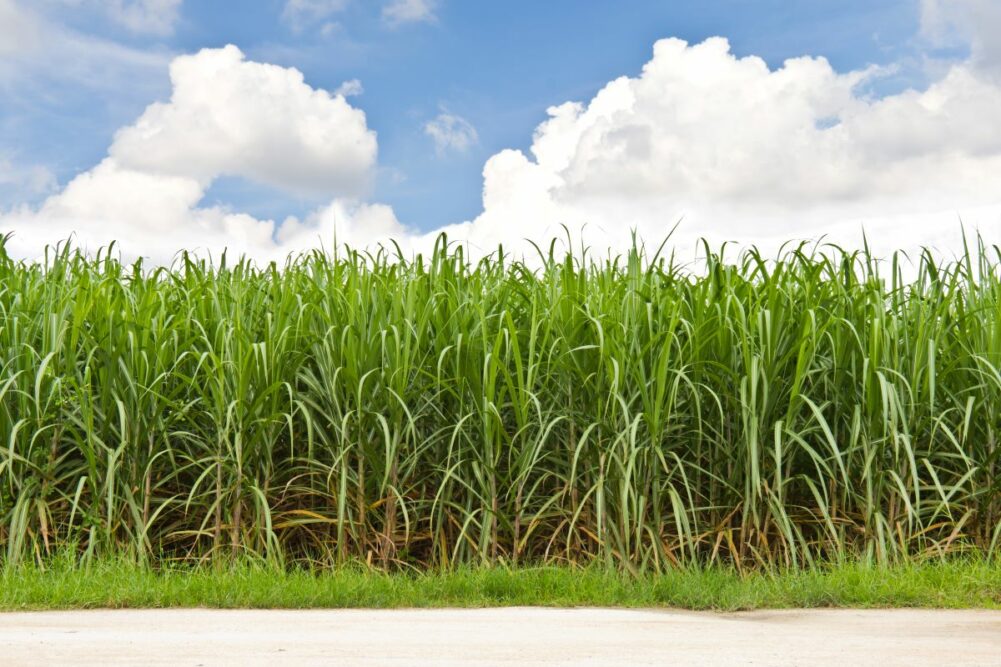How Sugar and Cane Are Processed for Use in Everyday Products
How Sugar and Cane Are Processed for Use in Everyday Products
Blog Article
Why Cane Sugar Processing Chemicals Are Vital for Modern Sugar Refining
The duty of cane sugar handling chemicals in contemporary sugar refining can not be overstated, as they are integral to improving both the performance of extraction and the general quality of the last item. Agents such as phosphoric acid and specific flocculants are used to remove impurities, resulting in sugar that not only fulfills consumer assumptions however likewise adheres to industry standards.
Role of Processing Chemicals
The efficacy of walking cane sugar processing hinges substantially on the strategic application of handling chemicals. These chemicals play a pivotal function in improving the performance and quality of sugar removal and refining. From the first stages of juice extraction to the last purification actions, handling chemicals help with numerous vital procedures.
In the extraction stage, chemicals such as phosphoric acid and calcium hydroxide are employed to optimize the clarification process, aiding to remove contaminations and put on hold solids from the walking cane juice. This not only improves the yield but likewise ensures the quality of the final product. In addition, representatives like flocculants help in the fast settling of pollutants, thus simplifying the total process.
As the handling advancements, chemicals are utilized in decolorization and crystallization phases. Triggered carbon and ion exchange materials serve to get rid of shade and smell, making sure that the polished sugar meets consumer quality requirements. Inevitably, the role of processing chemicals expands past operational performance; they dramatically affect the sensory characteristics of the end product, adding to market competition. Thus, the precise selection and application of these chemicals are crucial for accomplishing optimal outcomes in walking cane sugar handling.
Key Kinds of Chemicals
Cane sugar handling counts on a selection of vital chemicals that help with each stage of production. These chemicals play important roles in clarifying, bleaching, and purifying the sugar drawn out from cane.
One key classification of chemicals consists of flocculants, such as polyacrylamide, which help in the clarification process by promoting the gathering and settling of contaminations. In addition, calcium hydroxide is often employed to reduce the effects of acidity and assist in the elimination of non-sugar components.
Whitening representatives, such as turned on carbon and sulfur dioxide, are made use of to decolorize the syrup, leading to a clearer end product. These chemicals help get rid of color substances that might affect the sugar's look and marketability.
Additionally, phosphoric acid serves as a pH regulator throughout the processing stages, ensuring optimal problems for the enzymatic tasks included in sugar removal and filtration.
Various other essential representatives include edta (ethylenediaminetetraacetic acid), which chelates steel ions that might militarize unfavorable responses, and sodium hydroxide, which assists in pH control throughout the refining procedure. Collectively, these chemicals enhance efficiency and make certain a high-grade walking cane sugar product.
Benefits for Sugar Quality
Typically ignored, the use of certain processing chemicals considerably boosts the total quality of walking stick sugar. These chemicals play a pivotal duty in refining processes, making sure that the end product fulfills stringent industry requirements for purity and taste.

Furthermore, processing chemicals assist in accomplishing a regular granulation and structure, which are vital for customer acceptance. By regulating the formation process, these chemicals ensure that the sugar crystals create consistently, resulting in an extra enticing item that dissolves well in various applications.
Moreover, using these chemicals can improve the shelf life of walking stick sugar by reducing wetness absorption and microbial development. Generally, the critical application of processing chemicals is crucial for providing high-grade walking cane sugar that fulfills consumer assumptions and sector demands.
Ecological Impact Considerations

Additionally, the energy-intensive nature of sugar refining, worsened by chemical usage, frequently results in boosted carbon emissions. This contributes to environment adjustment and raises concerns pertaining to the sustainability of current refining techniques. Additionally, the sourcing of these chemicals may entail methods that endanger biodiversity, such as monoculture farming, which reduces the resilience of agricultural ecological communities.

To mitigate these impacts, sugar refiners are progressively checking out sustainable options and taking on best practices that lessen chemical usage. Implementing extensive ecological administration systems can aid guarantee that the refining procedure aligns with ecological criteria and promotes biodiversity. Ultimately, a well balanced approach that prioritizes both sugar quality and environmental stewardship is vital for the lasting feasibility of the sugar market.
Future Trends in Refining
As the sugar industry comes to grips with the environmental challenges connected with typical refining techniques, cutting-edge techniques are emerging to improve both efficiency and sustainability. One significant trend is the adoption of eco-friendly chemistry concepts, which focus on using non-toxic, naturally degradable handling chemicals. This shift not only lessens environmental influence however additionally addresses customer need for cleaner manufacturing methods.
Another promising growth is the application of sophisticated filtering innovations, such as membrane layer separation and adsorption processes. These methods enhance the clarity and top quality of the sugar while minimizing the quantity of wastewater generated during refining. Furthermore, the assimilation of electronic innovations, including IoT and AI, is changing operational efficiency by allowing real-time monitoring and anticipating maintenance, thus lessening resource waste.
In addition, making use of byproducts from sugar refining, such as bagasse and molasses, is obtaining traction. These materials can be converted right into biofuels or value-added items, adding to a circular economic climate within the industry. Jointly, these patterns indicate a shift towards even Web Site more sustainable practices that not just improve functional performance yet likewise align with worldwide sustainability objectives, ensuring the future stability of sugar refining.
Verdict
Cane sugar processing chemicals are essential in contemporary sugar refining, significantly enhancing the performance and top quality of sugar extraction. The tactical use these chemicals not just enhances the purity and taste of the last product yet likewise makes certain regular condensation and appearance. As the industry increasingly focuses on sustainability, the adoption of environmentally-friendly processing agents is likely to shape future patterns in refining, ultimately leading to greater quality products and expanded service life for customers.

Eventually, a balanced approach that prioritizes both sugar top quality and environmental stewardship is important for the lasting practicality of the sugar market.
Walking cane sugar handling chemicals are important in modern sugar refining, considerably pop over to this web-site improving the efficiency and quality of sugar removal.
Report this page